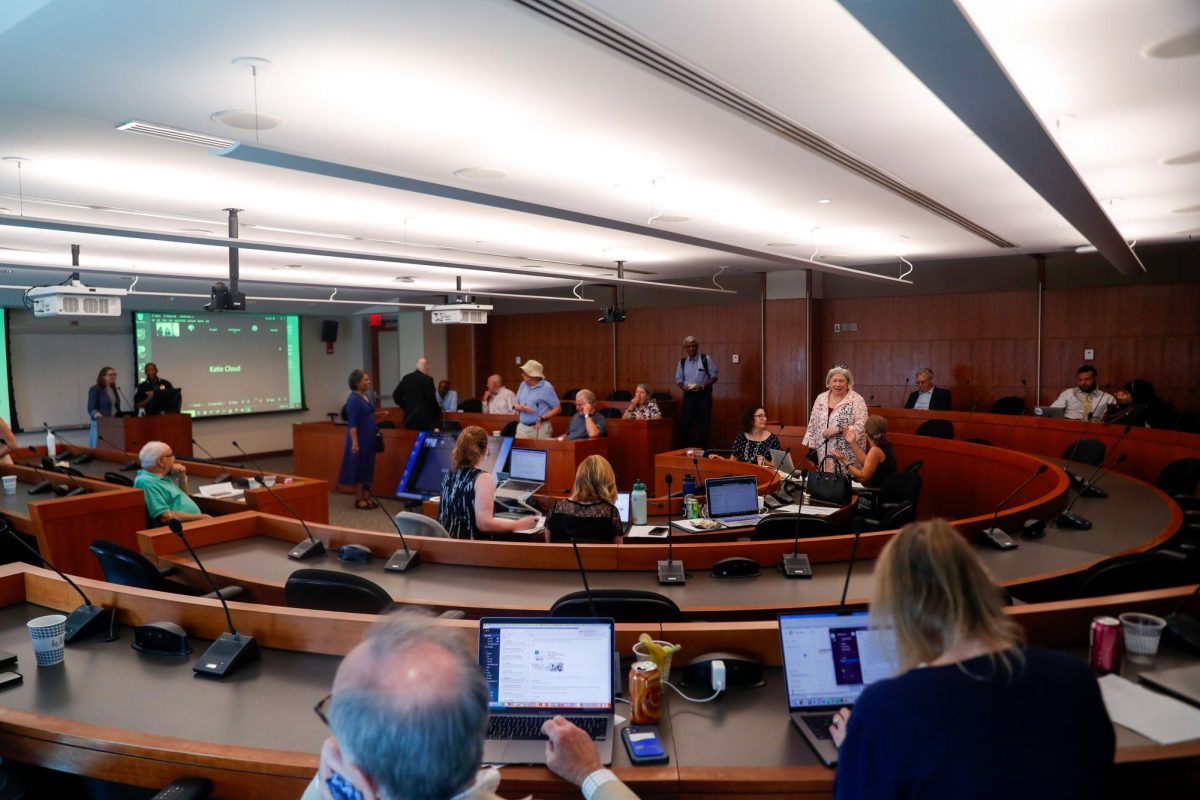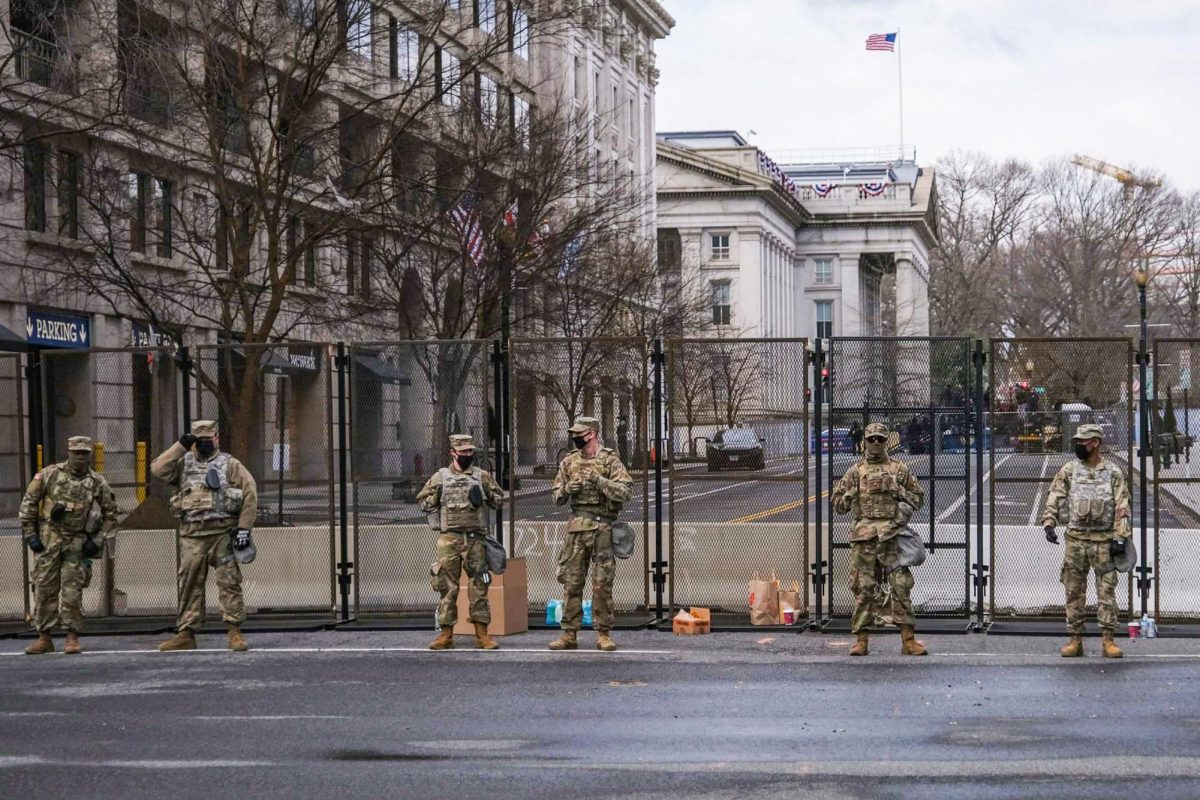Faculty Senate Executive Committee Chair Ilana Feldman shared plans to create a portal for faculty to report academic freedom concerns at a Faculty Senate meeting Friday.
She said the committee and the Senate Office would like to create a portal for faculty to report any concerns they have with exercising academic freedom in the classroom or other professional settings to ensure the University upholds its policy of protecting free inquiry, free expression and “vigorous” discussion and debate. Feldman said the senate Executive Committee discussed “increased threats” to academic freedom at the national level and the importance of faculty utilizing GW’s policy in support of academic freedom at their December meeting.
Since the start of the Israel-Hamas war in October, faculty at universities across the country have faced criticism from students, alumni and community members for expressing their views on the conflict. At GW, a billboard truck displaying the pictures, names and social media posts of faculty who expressed pro-Palestinian views parked on campus in December.
Feldman said the Academic Freedom Subcommittee of the senate’s Committee of Professional Ethics and Academic Freedoms would monitor submissions on the portal, which could allow faculty to submit reports anonymously. While the senate does not have the authority to act on complaints, they can refer faculty to the “proper channels” to receive assistance for academic freedom violations and collect information on areas where faculty would benefit from additional support, she said.
University President Ellen Granberg said there are currently no plans to alter the University’s policy on academic freedom or freedom of speech but that officials may alter the Code of Student Conduct to make sure regulations are “harmonized,” including by establishing what will occur when a student group has a space booked where another group is protesting a cause.
She said regulations are “all over the place” right now and do not all align with the code of conduct, which creates a lack of clarity on issues like the right to a reserved space.
“That’s one example of the sorts of things we realized that last semester are confusing, they’re unclear in the way our code works together with all of our other regulations,” Granberg said.
Provost Chris Bracey said he plans to share a message to community members at the beginning of the semester that reinforces the University’s commitment to academic freedom, freedom of expression and freedom of inquiry.
“As a university, we must recommit to providing space for our subject matter experts and students to engage in rigorous and thoughtful dialogue on important and complex topics,” Bracey said.
Granberg said the University is “on track” with enrollment projections as of January 2024 and officials anticipate GW will keep its distinction as a top-10 largest R1 university, a title the Carnegie Classification of Institution of Higher Education gives universities in the country with high levels of research.
Granberg added that at the start of 2024, officials launched the first steps of the strategic planning process. Officials will talk with community members to establish “strategic pillars” this semester that will guide “formal” strategic planning in the fall.
Granberg said officials finished implementing the necessary technology and policy changes to the University’s admissions selection process to continue to diversify admitted student classes while complying with the Supreme Court decision to end affirmative action in June.
“Staff and faculty are training on these adjustments and that we hope will ensure a smooth transition to these changes in our admissions process,” Granberg said.
Jennifer Brinkerhoff, a faculty senator and professor of international affairs, international business, public policy and public administration, asked officials to release specifics on changes to admissions policies and how these changes affect the work of the Diversity Program Review Team: a provost-appointed group made in February 2022 to complete a yearlong review of diversity at the University and submit recommendations for improving campus-wide diversity to University leadership by fall 2023.
“It’s a request that we have some transparency about what changes were necessary in the admissions process and also how the SCOTUS decision has impacted what we can do with the diversity program review report,” Brinkerhoff said.
Granberg also said officials will launch a website next week that houses additional support resources for students and “religious, fraternal and political groups,” and training for faculty and staff to provide support, particularly to those impacted by the conflict between Israel and Hamas. The website’s launch comes two months after Granberg’s October statement to community members denouncing identity-based mistreatment on campus and charging GW leadership to increase support resources and training.
Granberg summarized findings from the “after action review” released in December of officials’ September shelter-in-place that identified a need for improved communication after confusion over unclear University alerts led some students and faculty to leave their shelter more than two hours before the end of the four-hour advisory. Next week, officials expect to arm four lieutenants with 9 mm handguns to complete phase two of the University’s initial plan to arm about 20 GW Police Department officers in fall 2023, she said.
“We’re working to confirm that all of the required certifications and trainings have been completed for the lieutenants included in phase two,” Granberg said.





